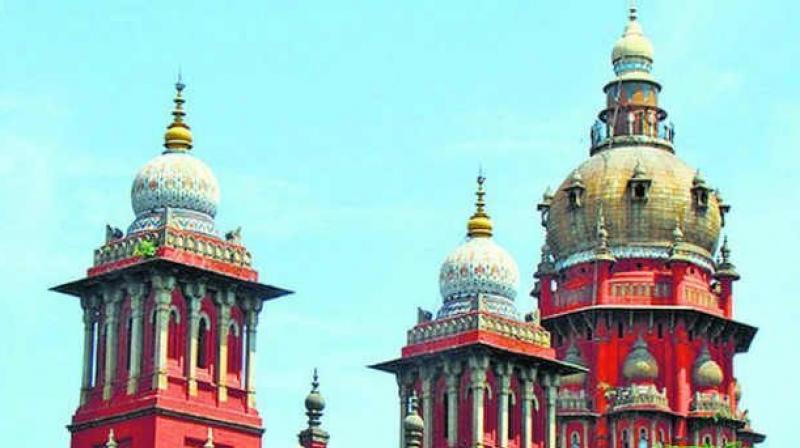Tamil Nadu moves Madras High Court in Nissan dispute
Aggrieved, the 2 companies had approached the high court and obtained interim orders and they were pending.

Chennai: The state government has approached the Madras high court to restrain the Nissan Motor Co Ltd in Japan and its local unit in SIPCOT in Sriperumbudur from in way proceeding further with the international arbitration between Nissan Motor Company and Republic of India pursuant to the 2011 Comprehensive Economic Partnership Agreement between Japan and Republic of India.
Justice Anita Sumant, before whom the application filed by the Tamil Nadu State Industries department came up for hearing, ordered notice to Renault, Nissan Motor Co Ltd, Union of India and three others.
According to the applicant, the steep increase in the output tax during 2012-13 and 2013-14 had raised certain queries and thereafter it was found that the two companies had changed their business model from April 1, 2012 and treating its consortium members RNAIPL as a manufacturing company and NMIPL as a marketing company, thus showing that the entire sales were effected within the state.
By the change in the business model, a product which was sold either by Renault or Nissan consortium, which gains input value gets the subsidy to that extent. As regards some products, if sold to the marketing company NMIPL, then it may result in subsidy for input as well as on the sales and it affects the consumer.
Hence, there was scope for enjoying double benefit of input as well as output value.
After considering all these aspects, the department issued an order dated March 10, 2015 taking into account the change of business model, and clarified the position. Certain amendment to the TN Value Added Tax also was made bringing the Act in alignment with the latest development.
Aggrieved, the 2 companies had approached the high court and obtained interim orders and they were pending. This was the subject matter of dispute raised in the arbitration, the applicant added.
The applicant said the change of business model affected the very purpose and object of the Memorandum of Understanding. The sustained development in various aspects was to be in a period of 21 years from the date of commercial production. Further, the maximum subsidy that can be paid was only around '4,500 crore. So far as refund of tax was concerned, it only depended upon the manufacture and sales. However, by getting the investment subsidy within a short span of time, there was likelihood of showing disinterest by the consortium which will in turn affect the development of the state, the applicant added.
The applicant said the Union of India entered into treaties as well as Comprehensive Economic Partnership Agreement with Japan and the companies with a view to coercing the state and seems to have invoked the International Arbitration contained under the Treaty to which the state was not a party.
No investment dispute may be submitted to International conciliation or arbitration, if the disputing investor has initiated any proceedings for the resolution of the investment dispute before the courts of justice or administrative tribunals or agencies. However, in the event that those proceedings were withdrawn within 30 days from the date of filing the case, the disputing investor may submit the investment dispute to such international conciliation or arbitration.

